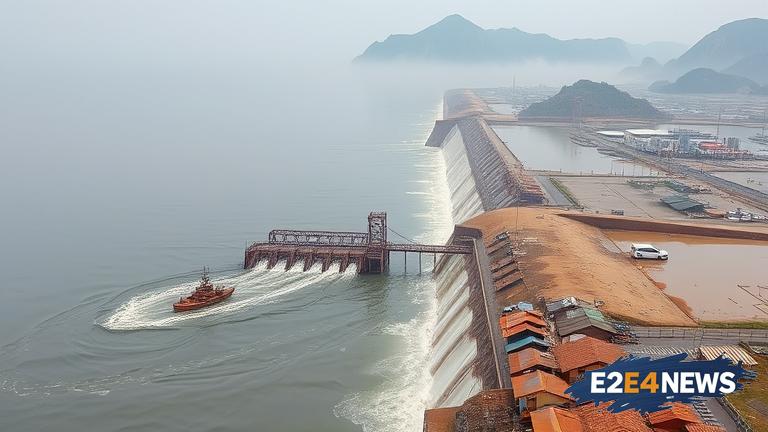A recent development has sparked widespread concern and evacuations in Pakistan, as India’s release of water into the Sutlej and Ravi rivers has significantly increased the risk of flooding in the region. The Indian government’s decision to release excess water from its dams has resulted in a substantial rise in water levels, prompting Pakistani authorities to issue flood warnings and evacuate nearly 150,000 people from low-lying areas. The affected regions, including Punjab and Khyber Pakhtunkhwa, are bracing for the worst as the flood risk continues to escalate. The Pakistani government has deployed emergency services and relief teams to assist with the evacuations and provide aid to those affected. The situation is being closely monitored, with officials warning of potential breaches in the riverbanks and widespread damage to crops and infrastructure. The release of water from India’s dams has been a longstanding issue, with Pakistan repeatedly expressing concerns over the lack of prior notification and coordination. The current situation has highlighted the need for improved communication and cooperation between the two countries to mitigate the risks associated with transboundary water management. As the flood risk continues to rise, the Pakistani government is working to minimize the impact on affected communities, with a focus on providing emergency assistance and supporting relief efforts. The international community is also being urged to provide support and assistance to help Pakistan cope with the crisis. The situation is a stark reminder of the importance of regional cooperation and the need for effective strategies to manage shared water resources. In recent years, Pakistan has experienced several devastating floods, resulting in significant loss of life and property. The country is working to improve its flood management capabilities, including the development of early warning systems and emergency response plans. However, the current situation highlights the challenges posed by transboundary water management and the need for sustained cooperation and dialogue between India and Pakistan. The release of water from India’s dams has also raised concerns over the potential impact on Pakistan’s agricultural sector, with farmers warning of significant losses to crops and livelihoods. The Pakistani government is working to provide support to affected farmers, including the provision of emergency aid and assistance with crop rehabilitation. As the situation continues to unfold, the international community is being urged to provide support and assistance to help Pakistan cope with the crisis. The United Nations and other international organizations are being called upon to provide humanitarian aid and support to affected communities. The Pakistani government is also working to raise awareness of the issue, highlighting the need for improved cooperation and coordination with India to mitigate the risks associated with transboundary water management. In the coming days, the situation is expected to remain critical, with ongoing evacuations and relief efforts. The Pakistani government is working to ensure the safety and well-being of affected communities, with a focus on providing emergency assistance and supporting relief efforts. The current situation is a stark reminder of the importance of regional cooperation and the need for effective strategies to manage shared water resources. As the flood risk continues to rise, the Pakistani government is working to minimize the impact on affected communities, with a focus on providing emergency assistance and supporting relief efforts.
